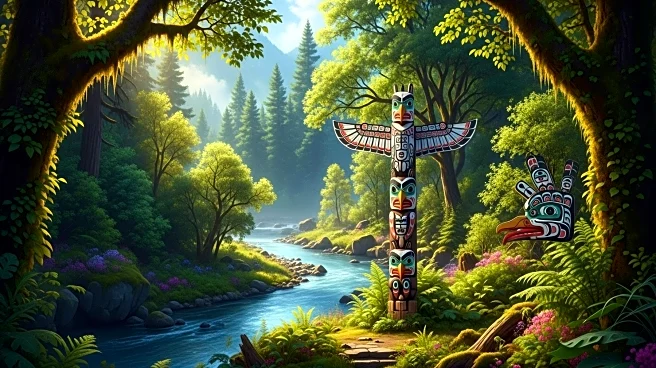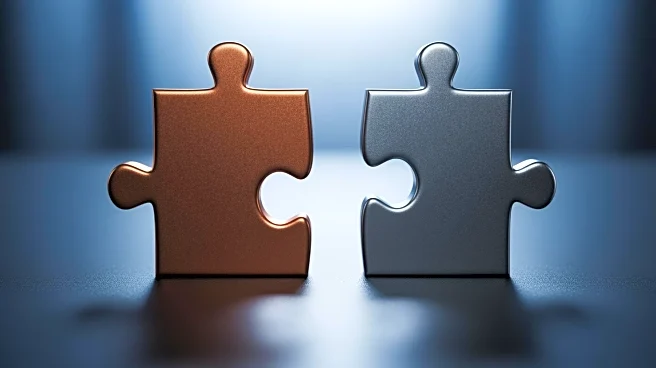What is the story about?
What's Happening?
Indigenous women across the globe are taking a leading role in protecting their communities' land and cultural heritage. The Beijing Declaration of Indigenous Women, adopted in 1995, highlighted the oppression faced by women worldwide and called for the recognition of Indigenous peoples' rights. Despite ongoing discrimination and threats, women are increasingly pivotal in combating these challenges. A report marking the 25th anniversary of the International Indigenous Women’s Forum (Fimi) emphasizes the crucial role women play in safeguarding cultures and territories. Leaders like Florence Jaukae Kamel from Papua New Guinea, Roeurn Heng from Cambodia, and Immaculata Casimero from Guyana are actively involved in initiatives to preserve their communities' land and cultural practices. These efforts include organizing women's collectives, advocating for land rights, and promoting cultural education.
Why It's Important?
The leadership of Indigenous women in protecting land and culture is vital for preserving biodiversity and cultural diversity. Their actions help combat the adverse effects of climate change, extractive industries, and land grabs, which threaten their communities' survival. By advocating for land rights and cultural preservation, these women are not only safeguarding their heritage but also promoting sustainable development. Their work supports economic independence and social empowerment, providing women with the tools to improve their communities' living conditions. This movement highlights the importance of recognizing Indigenous women as strategic actors in global efforts to address environmental and social challenges.
What's Next?
Indigenous women leaders continue to push for legal recognition of their land rights and cultural practices. Upcoming events, such as Cop30 in the Amazon, present opportunities for these women to amplify their voices on the international stage. They aim to secure more support from governments and international organizations to protect their territories and cultural heritage. The ongoing struggle for land rights and cultural preservation requires sustained advocacy and collaboration with allies worldwide. Indigenous women are expected to further strengthen their networks and initiatives, ensuring their communities' resilience against external threats.
Beyond the Headlines
The efforts of Indigenous women to protect their land and culture have broader implications for global environmental and social justice movements. Their leadership challenges traditional gender roles and highlights the intersectionality of environmental and gender issues. By prioritizing community-led solutions, these women are fostering inclusive and sustainable development models. Their work also raises ethical questions about the exploitation of Indigenous lands and the need for equitable resource distribution. As these women continue to advocate for their rights, they contribute to a growing global awareness of the importance of Indigenous knowledge and practices in addressing climate change and social inequality.















